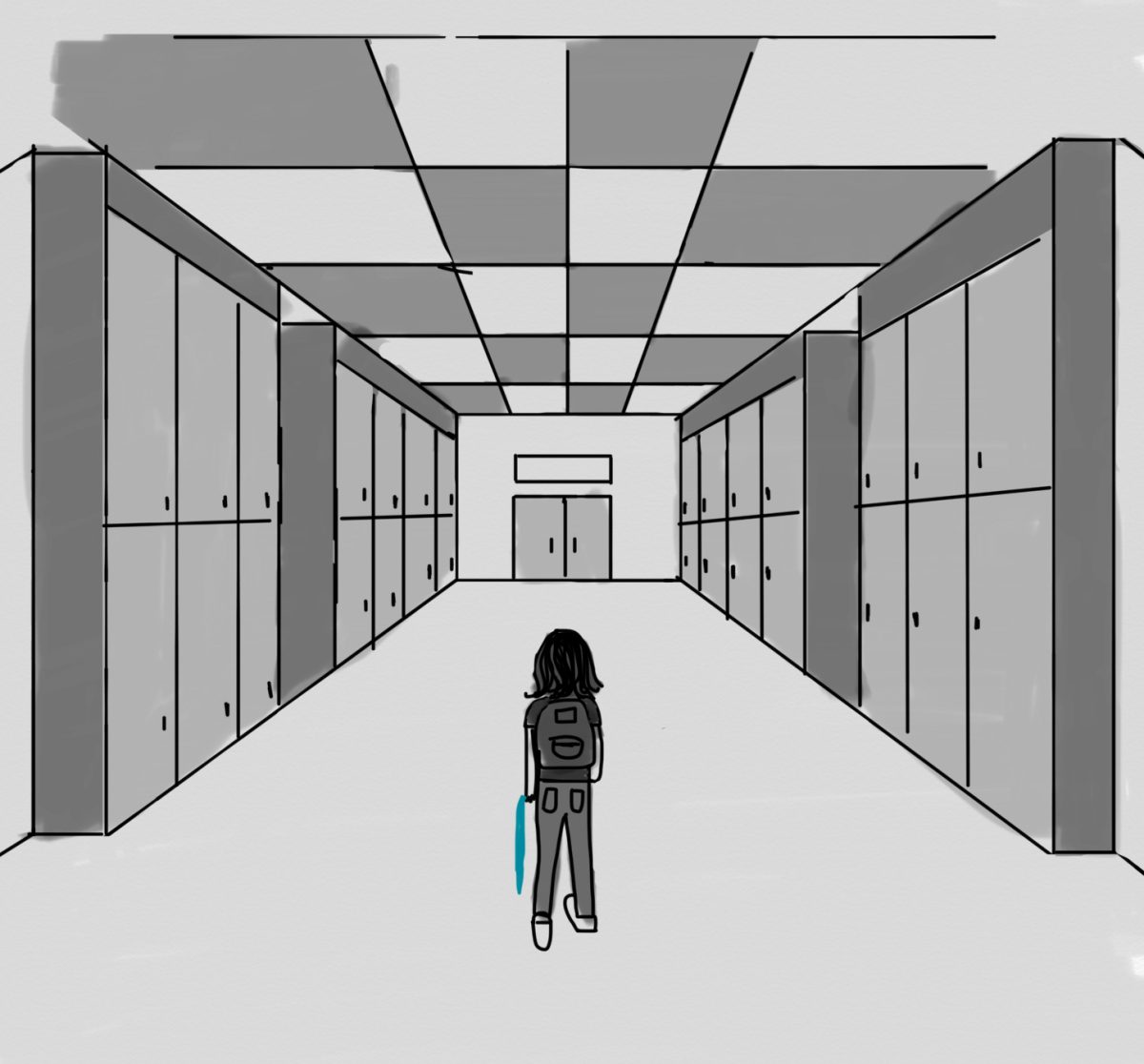It has long been understood that media such as movies, television and magazines can influence a teen’s perception of their body image by enforcing an ideal body type. Now, the impact of social media on body confidence and self-image has emerged. With the rapid growth of smartphone ownership among teens, more are gaining access to several new social media platforms.
According to CNN, a survey titled Children, Teens, Media and Body Image found that most teens who use social platforms often fret about how they will be perceived online. Of those teens, girls are found to be particularly vulnerable. Thirty-five percent are worried about being tagged in a photo that they think they do not look good in, 27 percent are stressed about how they look in photos posted online and 22 percent feel bad about themselves if their photos are ignored and not grabbing the attention they think they deserve.

Co-president and senior Maggie Smith has been involved in the club since her freshman year. She said believes that social media has made an impact on body image. Smith is a user of social media and has Instagram, Snapchat, Facebook, and Twitter.
According to Smith, although it may be hard to admit, she still compares herself to peers whom she follows on social media.
Unlike Smith, Natasha Arnowitz, the other co-president of the Body Positive Club who has also been in the club since freshman year, said she was not very involved with social media, although she has used various platforms in the past.
Media platforms such as Instagram, Snapchat, and Facebook provide resources that allow adolescents to feel the need to earn approval from their peers on their appearance and compare themselves to others. For example workout and health food accounts, and even tags such as #thinspiration.
“Not many people are like, ‘I love myself and I’m confident and everything’s perfect’ when they’re 15 to 18 [years old],” Arnowitz said.
“I had an Instagram for like a month…when it came to the filters I would be like, ‘Oh, the lighting looks better with this one on it,’ but then I would be like ‘Woah, I’m the president of the Body Positive Club. What am I thinking?’” Arnowitz said.
A 2011 study from the University of Haifa found that the more time girls spent on Facebook, the more they suffered from eating disorders, including Bulimia Nervosa and Anorexia Nervosa, poor views on personal body image, a negative approach to food consumption and more pressure to be on a weight-loss diet. This study also found that girls whose parents were involved in their use of social media were more resilient to the negative tolls compared to girls whose parents were not as involved in their exposure to media.
Another study from Florida State University and published by the International Journal of Eating Disorders found that a group of women who were asked to scroll through Facebook for 20 minutes experienced more body dissatisfaction than women who spent the same amount of time investigating rainforest cats online. According to Time magazine, the most vulnerable users on these networks are those who spend the most time on them. People who are constantly posting, liking, commenting and comparing themselves to others are more susceptible to feeling bad about themselves overall. This causes these social media sites to become more of a toxic mirror. Yet there are still other resources available that can cause even more problems with self-image.
“You want to present the most beautiful image of yourself to the world because everyone does, and you don’t want people to judge you,” Arnowitz said.
With an array of photo editing advancements, people of all ages have the opportunity to distinguish themselves on the internet as someone who they are not. Apps such as Facetune allow people to alter their bodies and conform them to unrealistic ideals. People are able to curve their body in unrealistic ways, whiten their teeth, blur out flaws, conceal scars and more. Additionally, anyone can pay for an advanced version of the app, which allows people to relight their photo, change the backdrop, gain a stronger touch-up ability to repair flaws, even more, fix shadows and obtain more filters.
“I don’t think I feel pressured to edit [photos] in the way that Facetune does, but in the same vein, I also think I’m very selective of the photos that I do post though, which I don’t think is better than editing,” Smith said.
Smith is lucky enough to not feel a pressure to edit photos, unlike some celebrities in the media. According to Buzzfeed, many celebrities have been accused of using the app, such as Kim Kardashian, Blac Chyna, Beyoncé, Lindsay Lohan and more.
Another popular editing app is VSCO, a free app with an endless supply of filter options. The app allows users to essentially relight and change the colors of the photo, and there is also an upgrade that allows users to pay $20 for an even larger variety of filters. Smith said that she had the app on her phone but rarely used it. VSCO can also be used as a form of social media if someone were to choose to post their edited and enhanced pictures.
“I think putting an image of yourself out there that really isn’t you can be kind of harmful to people because if you look at pictures of people that aren’t really them, then you think it’s them, then you have this impossible goal for yourself to look that way without a filter. It’s like a false reality type of thing,” Arnowitz said.
Arnowitz compared beauty standards to the movie “The Incredibles” in the sense that Elastic Girl is skinny and tall, yet she still has curves, while Mr. Incredible has a broad chest and is extremely muscular. This can also be compared to the way photos are being edited, because of them meeting today’s beauty standards and expectations.
Arnowitz then referenced the Kardashians and their body types. Many people look up to the Kardashians because they want to look like them, but the harsh reality is that to look their way is completely unrealistic. They get surgeries to achieve their unnatural looks, which are discussed in clips on the reality show. In addition, Smith then spoke about body positive accounts on social media as well and her feelings towards the accounts.
“Even a lot of body positive accounts on social media still promote things like weight loss and other ideas that don’t really fit in with my values and the Body Positive Club’s values. It’s definitely possible to create a positive community on social media, but I think the intention really has to be there. I don’t think it’s super easy just because I think that social media is kind of chock full of ideas that don’t really relate to body positivity and don’t encourage body positivity,” Smith said.
Smith said that being in The Body Positive Club has helped her gain a critical understanding of her own social media feeds and the effect of the accounts she follows have upon her. She surmised that the club has helped her realize why she follows the accounts that she does. Smith said she thinks that it is important for people with Instagram to scroll through their feed and think critically about the accounts they are following and the way they make them feel.























